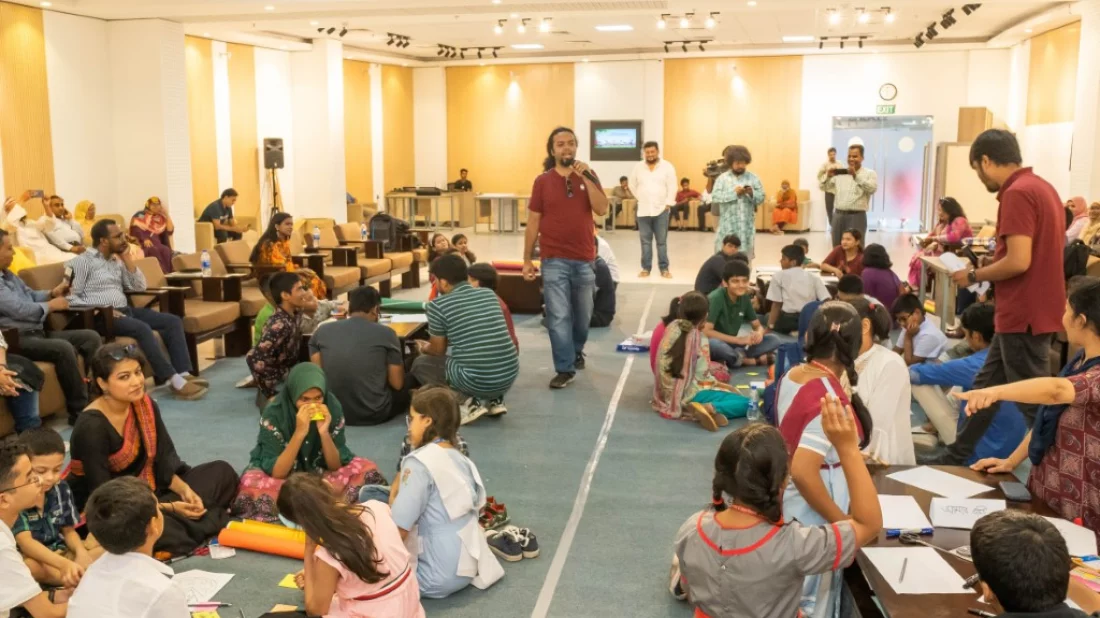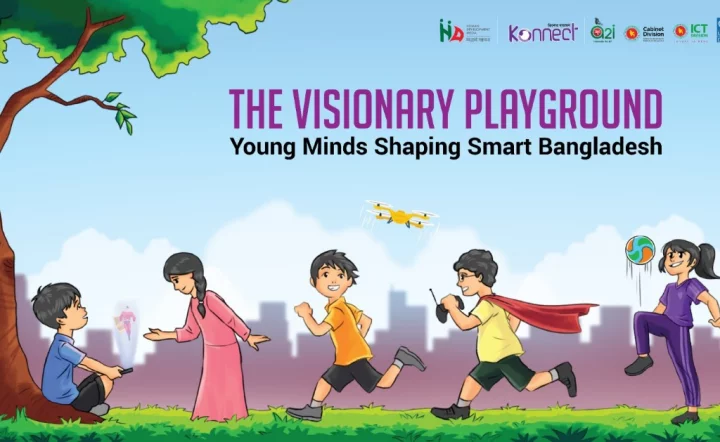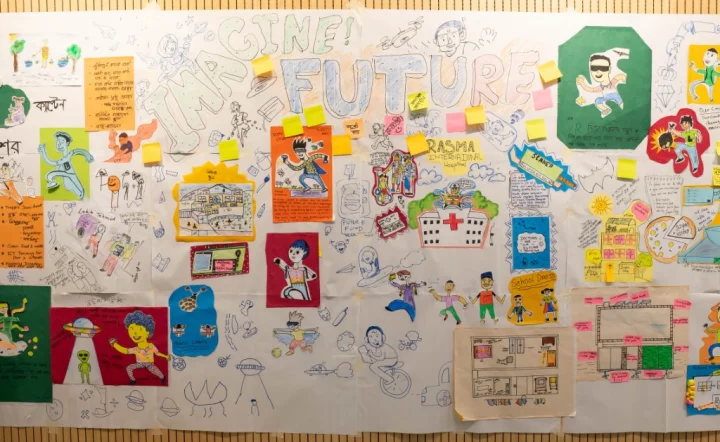12 July, 2023
Making money online
With the rising accessibility of the internet, online platform usage in Bangladesh has been increasing...
Date: 12 August, 2023
Reading Time: 7 Minutes

Will Smart Bangladesh only rush towards technological development? Will the citizens of Smart Bangladesh transform into a skilled population? Will Smart Bangladesh truly be affordable, sustainable, knowledge-based, intelligent, and innovative? All these questions are relevant as we build Smart Bangladesh. However, even before that, Smart Bangladesh must be humanitarian, a place where everyone will have compassion, forgiveness, kindness, tolerance, and generosity.
Prime Minister Sheikh Hasina emphasizes the “Smart Citizen” as a key pillar of Smart Bangladesh and advocates developing children with human qualities to build a compassionate and smart population. Through regular sports, exercise, and cleanliness, children are encouraged to lead healthy lives, as well as learn respect for authority, obedience to teachers and parents, and discipline.
The prime minister’s vision includes cultivating empathy towards those with disabilities, and creating an inclusive and caring society. Under her visionary leadership, Smart Bangladesh aims to not only be innovative and intelligent, but also humane and considerate, ensuring a brighter future for the nation.
In view of such guidance, The Konnect and Human Development Media (HD Media) Team of the Aspire to Innovate (a2i) Program under the Information and Communication Technology (ICT) Division recently conducted a day-long workshop, titled “The Visionary Playground: Young Minds Shaping Smart Bangladesh.”
The aim of the workshop was to engage 30 children aged 8 to 12 years and get their views on what it would take to build a Smart Bangladesh across various sectors, such as education, health, agriculture, entertainment, economy, climate change, city-village, and government.

Through interactive activities and group discussions, the children were encouraged to share their visions of a smart future. They expressed their desire for innovative learning environments, futuristic classrooms, and supportive teachers.
The children envisioned a future education system where learning is humane and enjoyable, helping students learn through play rather than mere rote memorization. The future would also promote creativity, critical thinking, and problem-solving skills.
The children emphasized the need for equal opportunities for girl children and children with disabilities in education, stating that all those living in rural or urban areas should have equal access to quality education. Robots would help teachers create an interactive and inclusive learning environment. The education system should not only give importance to skills, but also merit and knowledge.
The children’s vision for the future education system revolves around creating an inclusive, innovative, and compassionate learning environment that will empower the next generation of young minds in Smart Bangladesh.
They also imagined smart homes with advanced technologies, and cities with efficient transportation and infrastructure.
One of the children said: “I will grow up to be an architect and present Bangladesh to the whole world by creating big structures. My structures will be modern, with beautiful roads, playgrounds, lots of trees around, and there will be places for walking, so that everyone’s heart will feel good.”
Another said: “I want to grow up and solve the road traffic problem. With the help of the government, we want to make special rules for road traffic, where there will be separate lanes for cars, buses, and trucks.”
There would be separate lanes for bicycles and rickshaws to ensure the smooth movement of citizens. Besides, anyone who disobeys the traffic laws would be severely punished, and the traffic police would also fulfill their responsibilities.
Concerning health, they envisioned easy access to medical care and advanced treatments.
“I want to improve the medical system of my country. If someone has a complex disease, we want to take measures to get treatment in the country instead of going out of the country. That is why I want to add modern equipment to the medical system and encourage doctors to acquire all facilities and skills in modern technology,” one of the children said.
The children’s creativity also came to the fore as they discussed their dream superpowers. They expressed their willingness to solve problems like gender discrimination or poverty if they could do so.

“Discrimination is an important issue in our country. Many people are not permitted to completely voice their ideas, and the counsel of those who live luxuriously is frequently given priority. Discrimination prevents people from expressing themselves freely, which eliminates a variety of viewpoints. Despite the current laws, gender inequality continues, with girls lacking the same independence as boys. We must address discrimination and place a high value on everyone’s intelligence if we want to become a smart nation. Eliminating discrimination will promote harmony and open the door to a smarter and more successful country,” said another child.
Some of the children emphasized the environment. They said they want to protect all trees in villages and cities and to plant lots of trees in empty spaces for Bangladesh in 2041. They want to fix the sewage system of the city and take all necessary measures to stop pollution.
Moreover, the children displayed their awareness of the potential impact of AI on their lives, acknowledging its role in transforming everything, from education to daily tasks.
“I want to create a robot pet that can do various tasks. For example, it can play with you, entertain you, and can also turn it into a vacuum cleaner and clean your house. It will have feelings just like a real pet. It will be very cute and playful.”
“I want to see Smart Bangladesh of 2041 in a way where there will be no distinction between rich and poor. They will love each other and show the country’s traditions, culture, and goodness to everyone.”
Overall, the workshop provided a platform for young minds to contribute their imaginative ideas, showing how Smart Bangladesh could be shaped by their innovative and forward-thinking perspectives with humanity, love, and respect.
Purabi Matin is the Head of Culture & Communications, a2i. Basudev Paul is HD Media Coordinator, a2i.

12 July, 2023
With the rising accessibility of the internet, online platform usage in Bangladesh has been increasing...

27 June, 2024
One of the key advantages of the ekPay is- it gets rid of the need...

27 March, 2023
a2i catalyses experimentation and public-private partnerships applying a gender lens to unlock new services and...